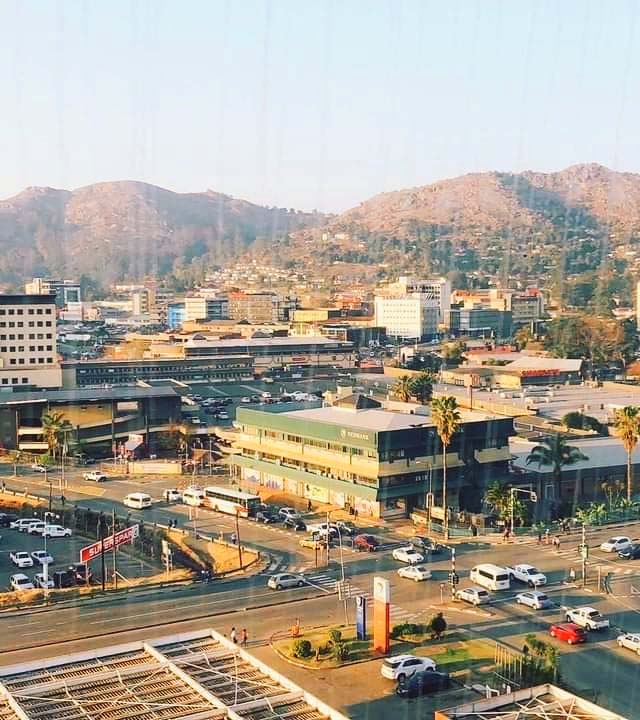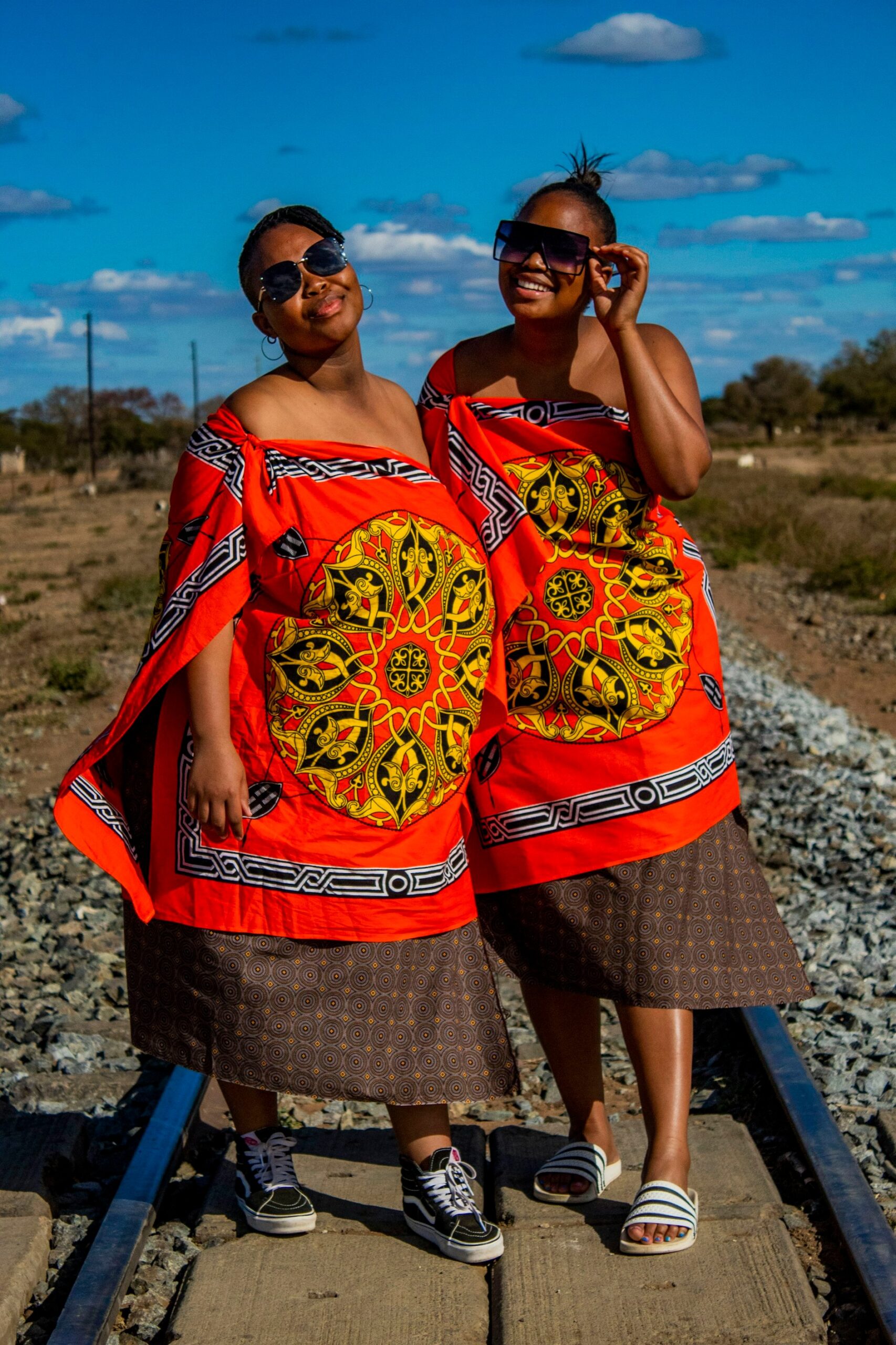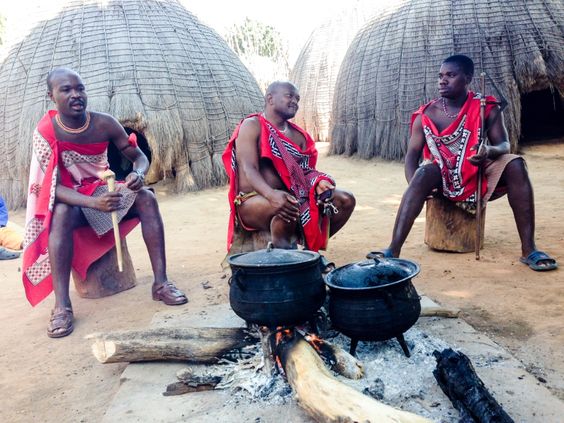
Photo by Toro Tseleng
ESWATINI
Eswatini, a landlocked country in Southern Africa, is bordered by Mozambique to the northeast and South Africa to the west, south, and southeast. Eswatini was formerly known as the kingdom of Swaziland until 2018.
Eswatini has two capital cities. Mbabane is the administrative, officially recognized capital, while Lobamba is the royal and legislative capital. Mbabane, the capital of Eswatini, is nestled in the Highveld region, surrounded by rolling hills and a temperate climate. The official languages are Swati (Siswati) and English, with a significant portion of the population speaking Zulu and Tsonga as well, reflecting the region’s linguistic diversity. Eswatini is home to the Swazi people, a Bantu ethnic group with a proud and vibrant cultural tradition.
Eswatini’s history is deeply rooted in the Swazi Kingdom, which dates back to the early 19th century. The kingdom was founded by King Sobhuza I, who consolidated various clans under his rule. His son, King Mswati II, later expanded the kingdom’s territory, which is why the country is named after him.
Eswatini gained independence from British colonial rule in 1968 and remains one of the world’s last absolute monarchies, ruled by King Mswati III.
Eswatini is a dual monarchy with King Mswati III as the head of state. The king holds significant political and cultural influence, and Eswatini’s system of government blends traditional governance with modern parliamentary elements.
The economy of Eswatini is largely driven by agriculture, forestry, and mining, with sugar, cotton, and citrus fruits being key exports.
The country also has a developing tourism sector, capitalizing on its stunning scenery of mountains and valleys, forests and plains; wildlife reserves and cultural reserves.
Despite its small size, Eswatini is an economic powerhouse with a diverse economy that includes manufacturing, mining and textiles.
Eswatini’s cultural heritage is expressed through its festivals, arts, and crafts. The country is famous for its handcrafts, including woven baskets, beadwork, and traditional pottery.
The eSwatini diet is based on tinhlavu (grains) and tibhidvo (vegetables). Inyama (meat) dishes are reserved for special occasions when dishes such as goat stew, roast leg of goat, or stuffed or roast free-range chicken are served.
The Umhlanga (Reed Dance) and Incwala (First Fruits) ceremonies are significant cultural events that attract thousands of participants and tourists.
Hidden Insights: Uncovering Eswatini
- Mlilwane Wildlife Sanctuary: Eswatini’s first conservation area, Mlilwane Wildlife Sanctuary, is nestled between the Mbabane and Manzini regions. It offers visitors a chance to explore the country’s rich biodiversity, including zebras, antelopes, and hippos, as well as picturesque landscapes perfect for hiking, horseback riding, and bird watching.
2. Sibebe Rock: One of the largest exposed granite domes in the world, Sibebe Rock is a natural wonder that offers challenging hikes and spectacular views of the surrounding countryside. The rock holds cultural significance for the Swazi people and is an essential destination for outdoor enthusiasts.
3. Mantenga Cultural Village and Falls: The Mantenga Cultural Village provides an immersive experience into traditional Swazi life. Visitors can learn about Swazi customs, dance, music, and rituals. The nearby Mantenga Falls, one of the highest waterfalls in Eswatini, adds to the scenic beauty of the area, making it a must-visit spot.
4. The Great Usuthu River: Known as the largest river in Eswatini, the Usuthu River is popular for white-water rafting and kayaking. The river’s dramatic rapids and serene stretches offer both adventure and relaxation, making it a hub for eco-tourism.

Photo by Mohau Mannathoko

Photo by Toro Tseleng
Capital City: Accra
Population: 1,138,089
Nationality: liSwati (singular), emaSwati (plural)
Location: Southern Africa
Languages: English (official, used for government business), siSwati (official)
Religion: Christian 90% (Zionist – a blend of Christianity and traditional African religions – 40%, Roman Catholic 20%, other Christian 30% – includes Anglican, Methodist, Church of Jesus Christ, Jehovah’s Witness), Muslim 2%, other 8% (includes Baha’i, Buddhist, Hindu, indigenous, Jewish) (2015 est.)
Area Total: 17,364 sq km
High Commission of Eswatini
Address: Stuart House, 20 Buckingham Gate, London SW1E 6LB, United Kingdom
enquiries@swaziland.org.uk
Correcting The Map: The True Size Of Africa
The Mercator Projection downplays the size of Global South continents as it makes the Global North look larger
Heritage: What shapes us?
When heritage is mentioned, our minds often leap to the spectacular and the visible: the grandeur of world heritage sites, the majesty of traditional attire, the vibrant swirl of dances and festivals, or the melodies of mother tongues. These are the showpieces of...
HER-itage: Africa’s Phenomenal Queens And Leaders
Honouring and celebrating the incredible contributions of women throughout African history. These remarkable women have shaped nations, led revolutions, and stood against oppression with unwavering resilience. These queens, warriors, and visionaries broke barriers,...
